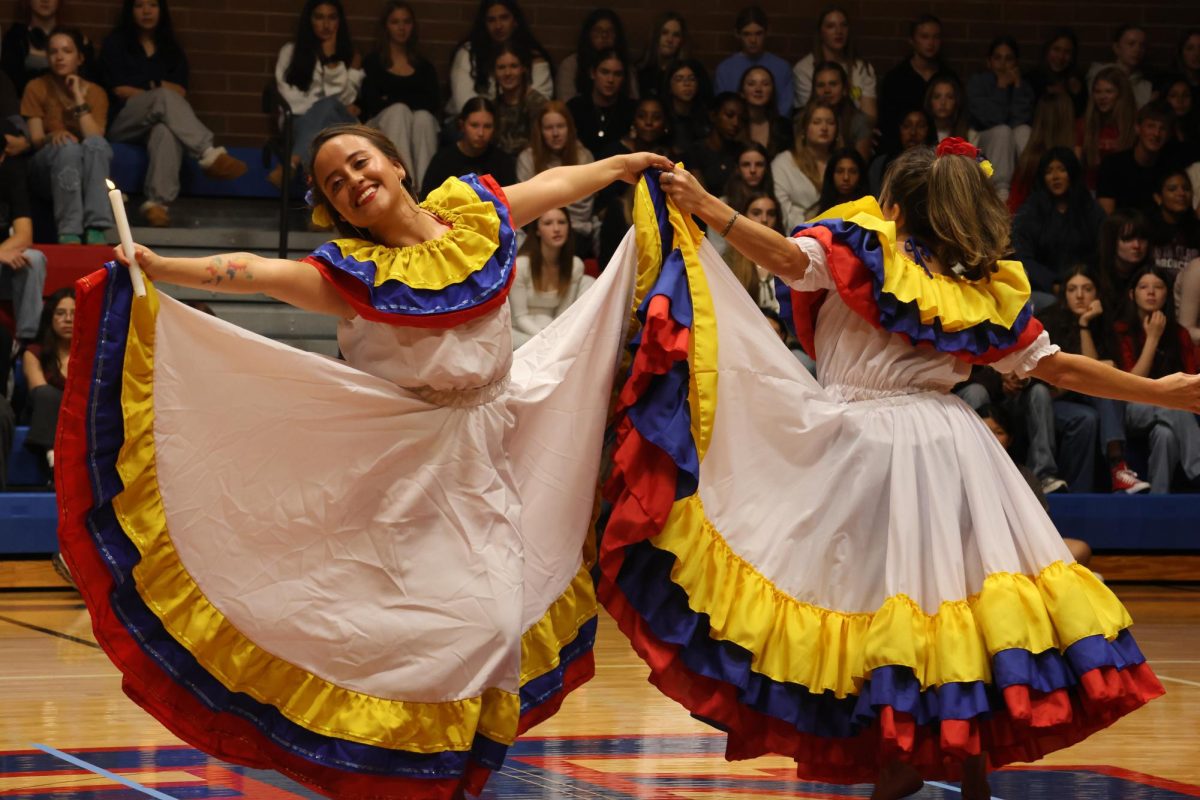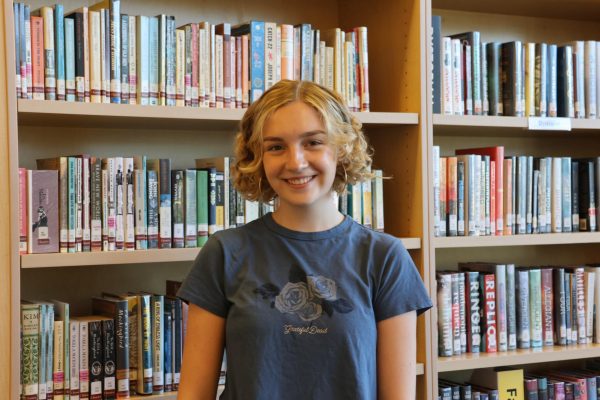At 11:35 a.m. on Tuesday, Sept. 16, La Salle’s counseling center began to fill with students. A mix of sophomores, juniors, and seniors, they had all chosen to sacrifice some of their lunch or class period, united by a common desire to better understand what is or will become a central focus of their time and thoughts: college.
Specifically, they were there to speak with an admissions representative from the University of Oregon, who presented about it as part of a series of approximately 50 college visits planned by the college counseling team for this fall.
Running from early September to mid-November, and including visits from schools such as Boston College, the University of San Diego, Dartmouth, and the University of London, these events provide the opportunity for students to speak with school representatives. Often admissions counselors, who in most cases are the ones evaluating their applications and essays, these representatives spend the 30 to 35 minutes of either A or B lunch highlighting their school’s academic programs, admissions process, and student life, before taking questions from individual students.
Meeting with these reps, college counselor Ms. Jennifer Brigham explained — even if only through a brief conversation — allows students to start building connections, as representatives often remember the students that they talk to at these kinds of events.
That can have an impact on both students’ experience and their application, she said.
“The folks coming to visit who represent the university are actually the people reading your application, so it’s a moment of interaction and contact that can actually influence the outcome of your application,” Ms. Brigham said. “The admissions officer is called an admissions officer, right? They’re not called rejection officers… They want to connect with students and help students connect with their universities.”
Being able to speak with the people seeing their essays — often one of the most anxiety-ridden aspects of college applications — can humanize what is at times a confusing and complicated process, college counselor Ms. Madeleine Hanley explained.
It also provides a window for the admissions representatives into the lives of the students they’re reading about.
“When they meet a student, it helps give them context when they’re reading their essay, reading their activities list,” Ms. Hanley said. “It’s very helpful for the admissions rep to get a face to that application. It makes it a more personalized process.”
However, that can create some stress and anxiety for students, who worry about these visits being a high-stakes first impression. But they don’t need to, she said.
“They’re just people. They’re here to get to know students; that’s why they do this work. They love meeting high school students and finding out what they’re interested in, and it’s a very casual sort of meeting. It’s nothing to be stressed about,” she said. “The best impression is really just showing up, being engaged, and asking questions.”
That ability to ask questions is one of the most beneficial aspects of the visits, according to senior Danica Glazier.
“I think a lot of the information that they say can be found online, but what is helpful is to kind of ask the admission officer specific details,” she said. “You’re actually asking someone who works directly at that school about it, which I think is really valuable.”
Having those specific inquiries answered — such as what the school’s process for merit aid is, the pros and cons of applying Early Action versus Regular, and what the community on campus is like — can help paint a clearer picture for students of if and how they should go about applying, Ms. Brigham said. Even just interacting with the reps themselves can offer a glimpse of that university’s atmosphere, as schools often send former graduates who exemplify the culture on their campus.
“I think schools are very aware of who they’ve chosen to come manage their visits,” she said. “They pick people who are really representative of the general vibe at the school, to a certain extent.”
This also translates to their perspective on students’ personal fit, Ms. Hanley said, as they can support them in developing an understanding of what they’re looking for in a school beyond the minors and majors it offers. Things like retention and graduation rate are influenced by what you feel like in class, not just what class you take, and can be better understood by speaking with former students who have been there, she explained.
“The reps give a really insightful description of the type of student that would be successful and happy on their campus,” she said.
For senior Emily Gdarah, this is especially important, as one of the biggest factors she’s considered when looking at colleges is their community.
“Community is a really big thing for me, having these close relationships and coming from a school where I’ve known people since first through eighth grade,” she said, highlighting that her personal statement actually focuses on the value of those relationships in her life. “For a college that is my number one factor I’m looking for, is somewhere I can see myself… feeling that sense of community and belonging.”
In addition to learning more about schools they’re interested in, Ms. Hanley emphasized the importance of researching and attending visits for a variety of colleges.
It’s equally important to know what you aren’t looking for as what you are, she said.
“The more you can explore different colleges, the more you’re gonna realize what you like and then what you don’t like,” Ms. Hanley said. “The more information sessions you can go to, the more informed you will be making your own college decision.”
Glazier echoed that perspective, reflecting on the large number of visits she attended last year at La Salle along with her and her family’s journey figuring out the college application process together.
“The more that I go to these things, I understand better and have a clearer picture of what I want to do,” she said.
However, building that understanding — and working through the entire application process — has been very stressful, she said.
Even senior Liam Kean, who watched as his older brother applied to college and whose mom works as a college counselor, said that managing working on his personal statement, activities list, and ongoing college research along with his responsibilities as a student and involvement in extracurricular activities is a lot.
“This is really stressful, and now it’s definitely stacking up and definitely getting more stressful,” he said. “I know I have a lot of time, but it’s more that the time between now and the deadline… it’s just packed.”
At the advice of his mom, Kean started the application process early on in the summer, and had been thinking about what he wanted to pursue and what school was the best fit for him since he started high school. Because of that, he said he had a better idea of what he wanted to get out of the college visits here, and has attended a lot of them in order to expand his point of view.
“Starting early was the best part, and I think the most helpful thing I did,” he said. “Seeing more universities and knowing that there’s more out there kind of broadened my ideas.”
Hearing from a diverse range of schools at college visits — such as West Point Academy, universities from Scotland and London, and the University of Alaska, to name a few — allowed him to think outside the box, connecting his interests with more programs, majors, and possibilities.
“Everybody’s like, ‘I want to be an engineer, I want to be a doctor, I want to be a lawyer.’ It’s like, there’s 1,000 careers outside of that,” he said. “There’s… too many engineers, there’s enough doctors, and there’s enough of everything that you [have to] find other pathways. And so starting early helped me do that.”
Speaking with a University of Alaska representative last year helped Kean to realize that he shouldn’t simply be going through the motions when it comes to college.
What matters more than the school he attends, he said, is “what I want to achieve out of it.”
Ms. Hanley said that’s an important perspective to keep in mind. Sometimes there’s a lot of noise surrounding college rankings, career choices, and the applications themselves, which can often add additional stress for students in what is already a complex and nuanced ordeal.
“This is such an individual journey,” she said. “Don’t listen to what other people are doing. Don’t listen to what other people are saying. This is your journey.”
The best course of action for students, she explained, is not to compare their position or aspirations regarding college with that of their peers. Rather, it’s critical that they reflect on what they want to do and who they want to be once they finish.
“It’s really, at the end of the day, not about where you go,” Ms. Hanley said. “It’s about what you do once you’re there.”


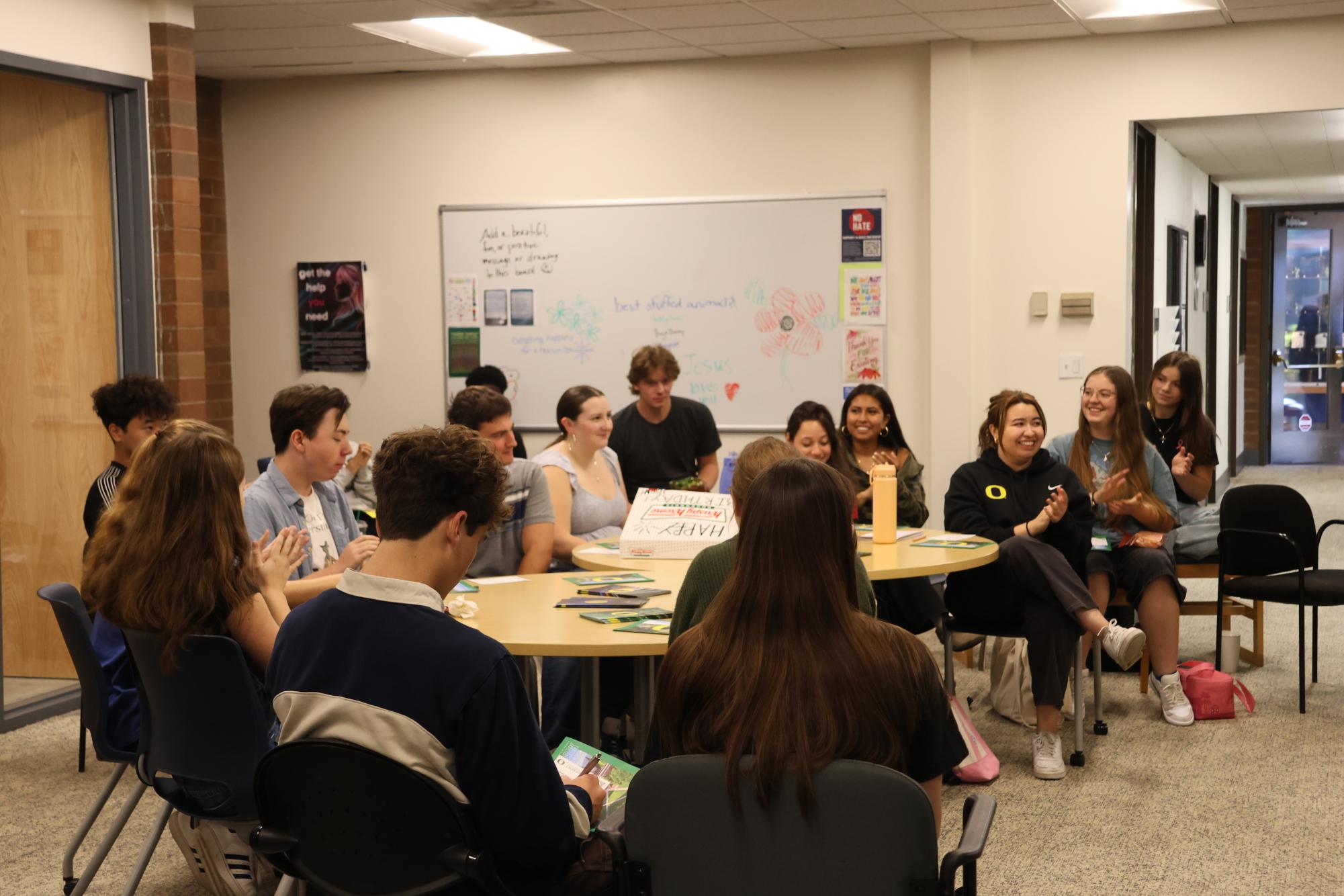
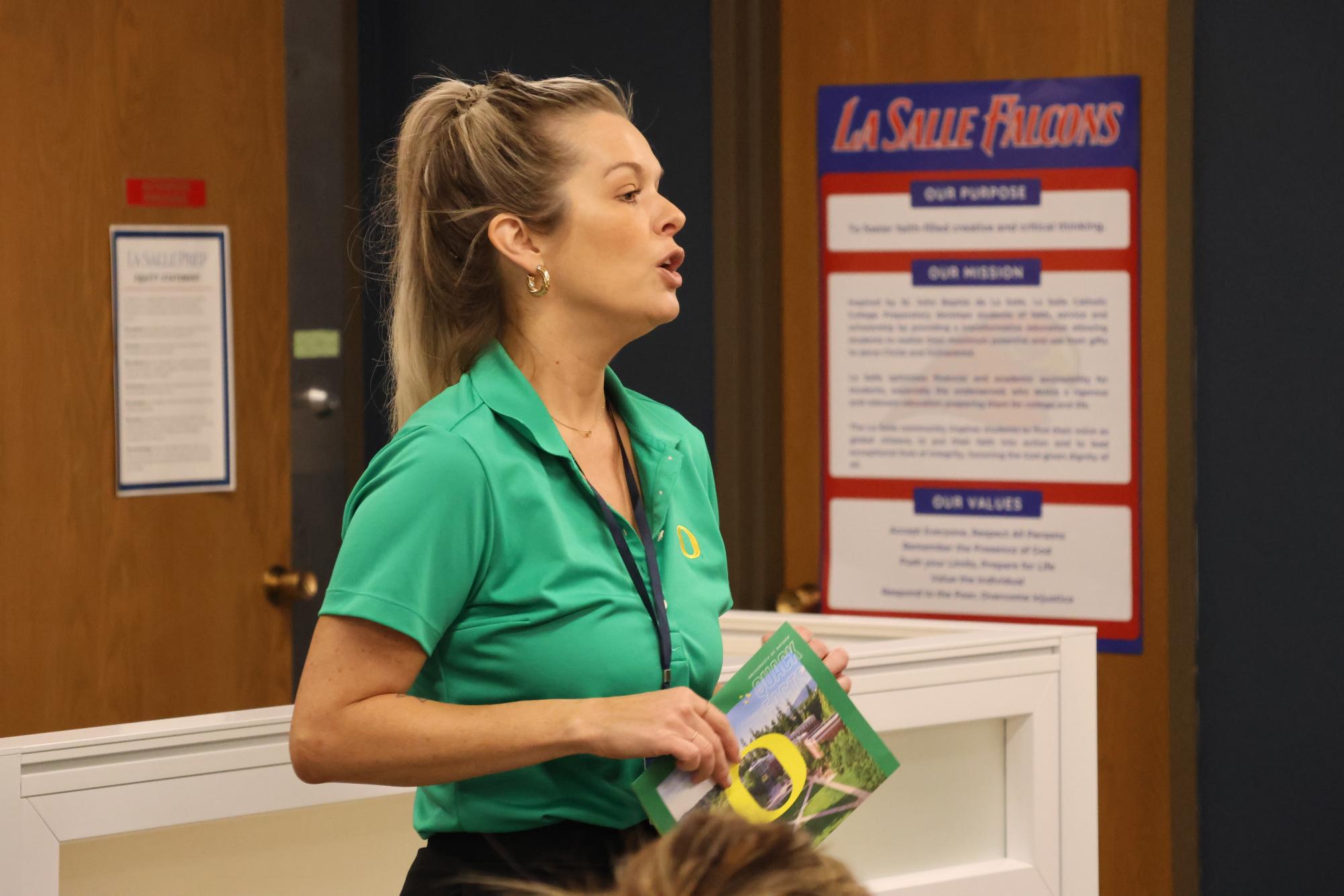
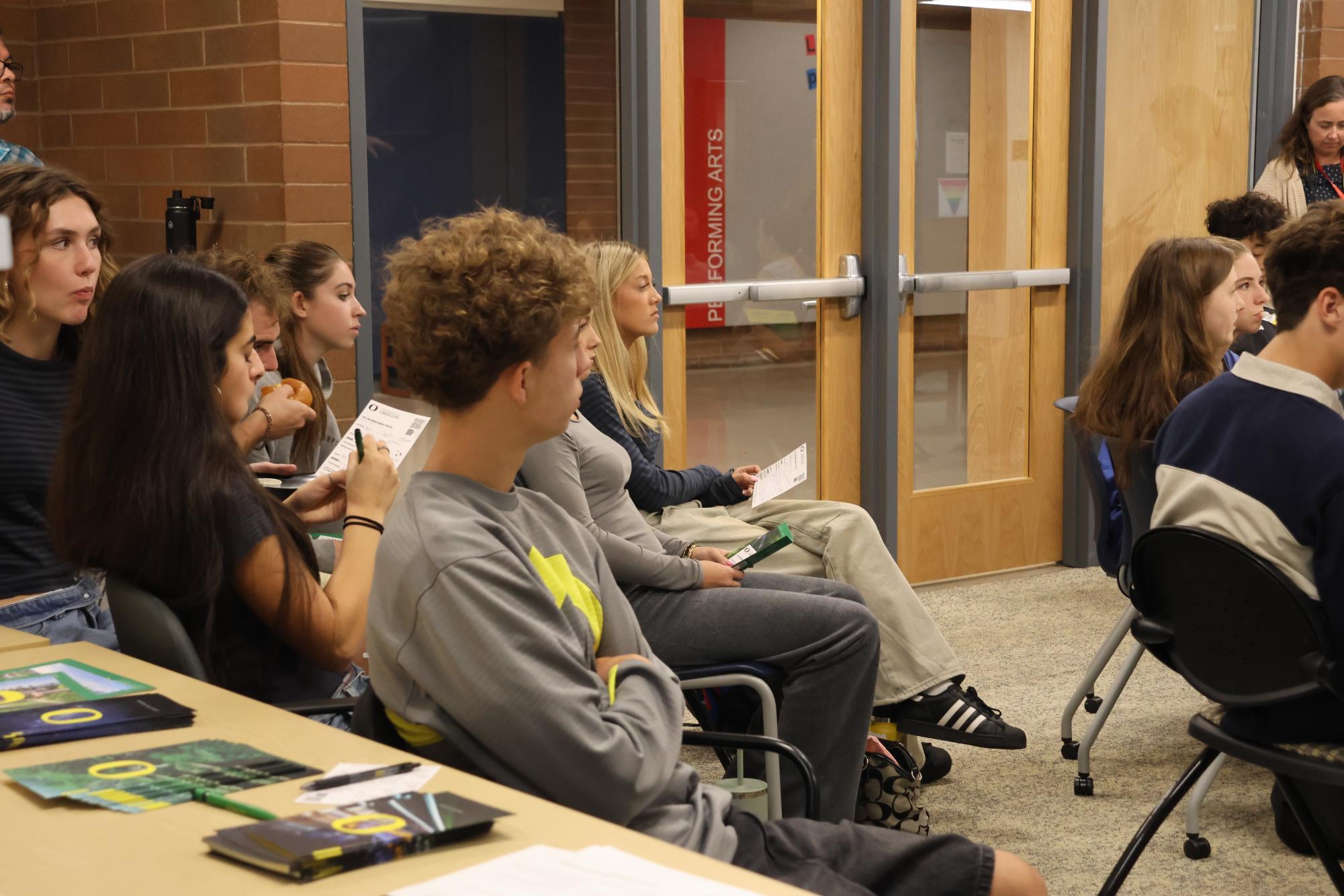
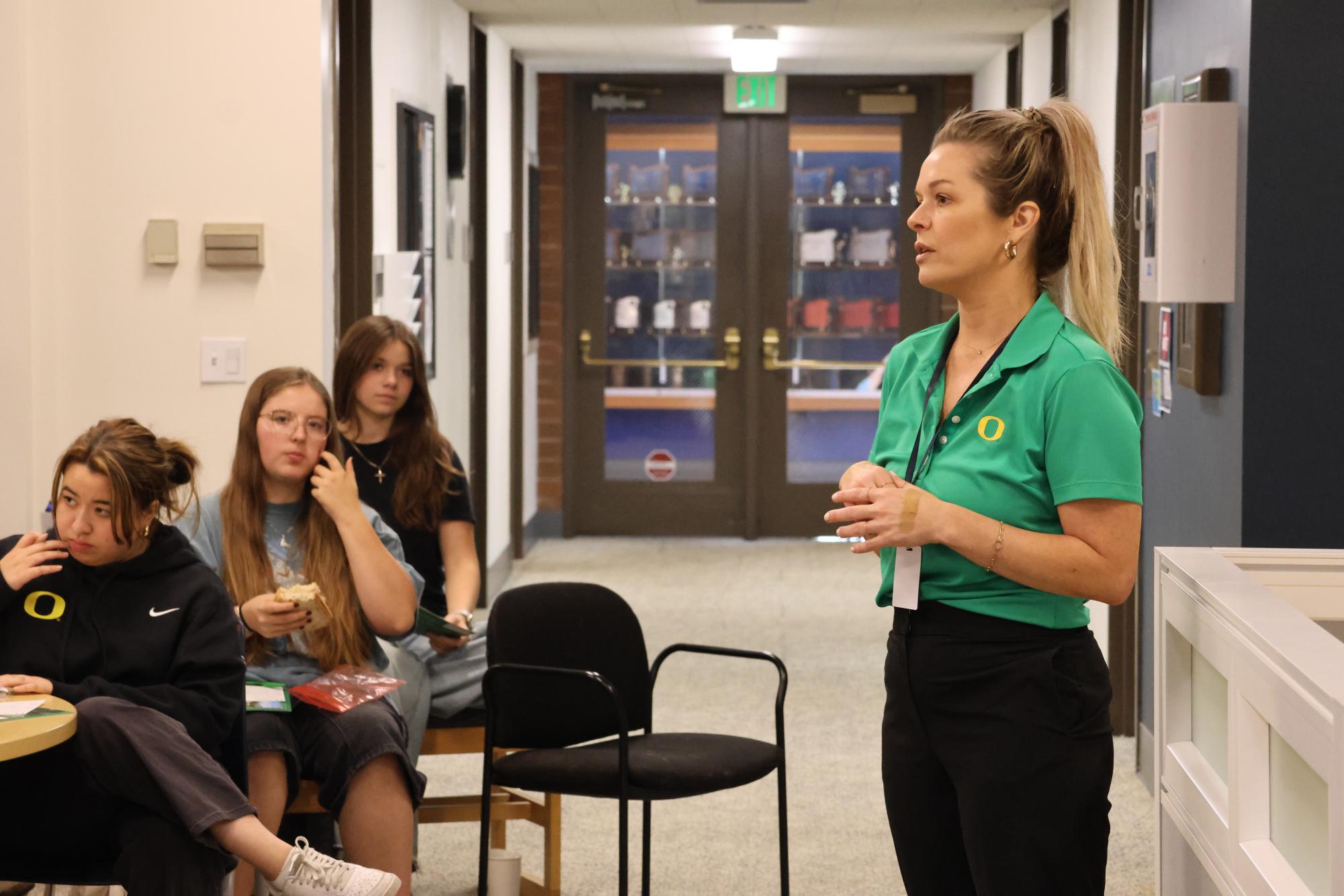
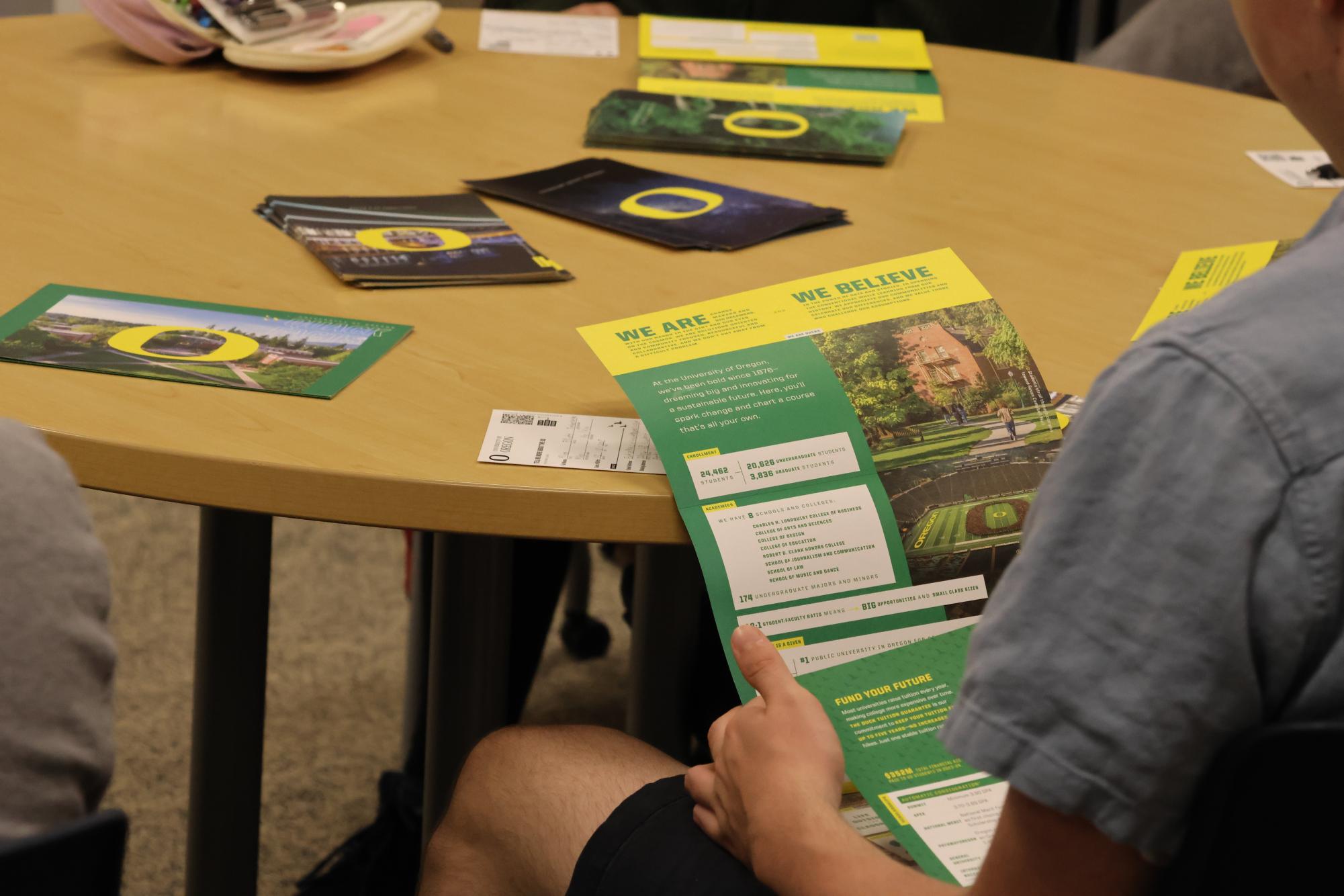
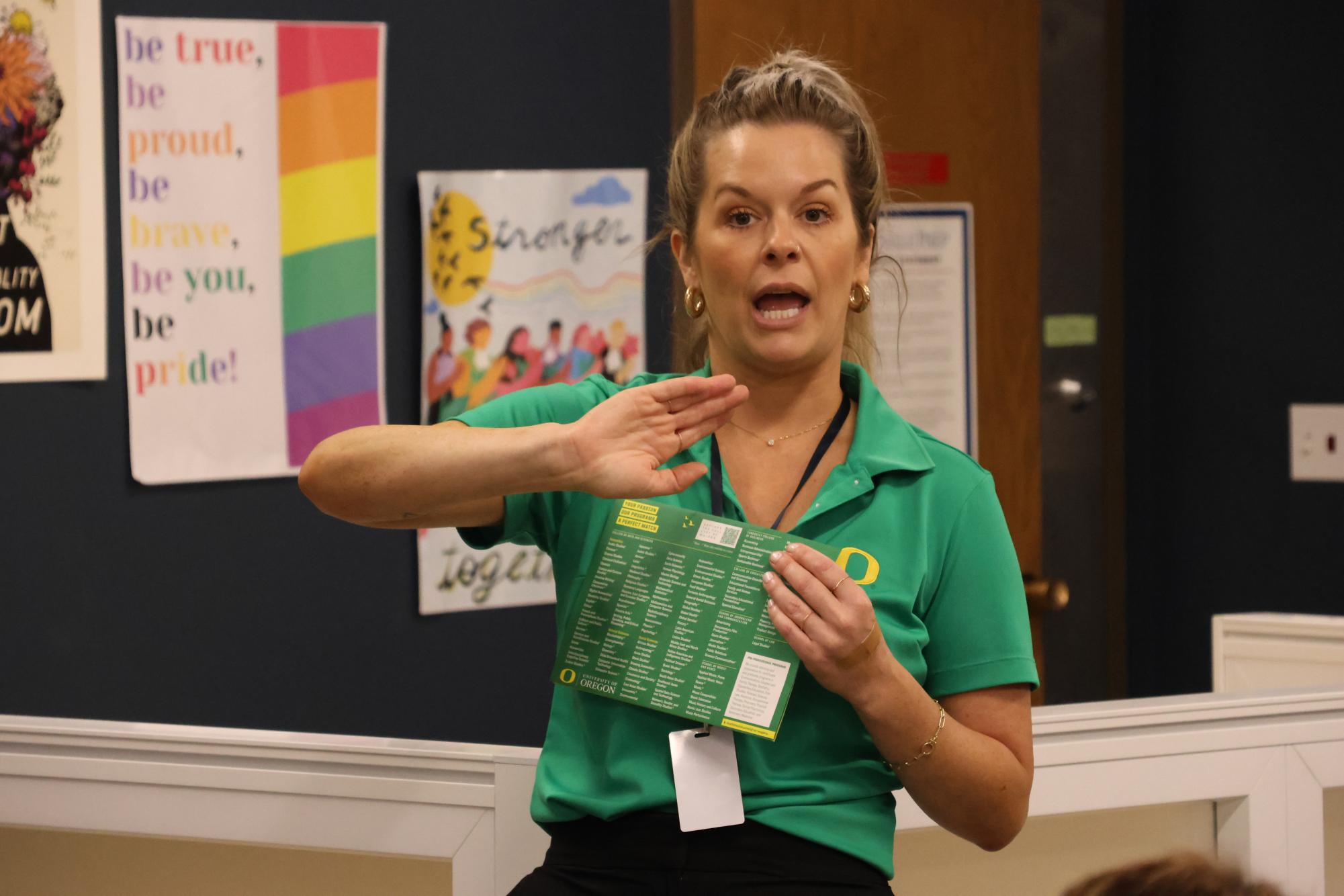
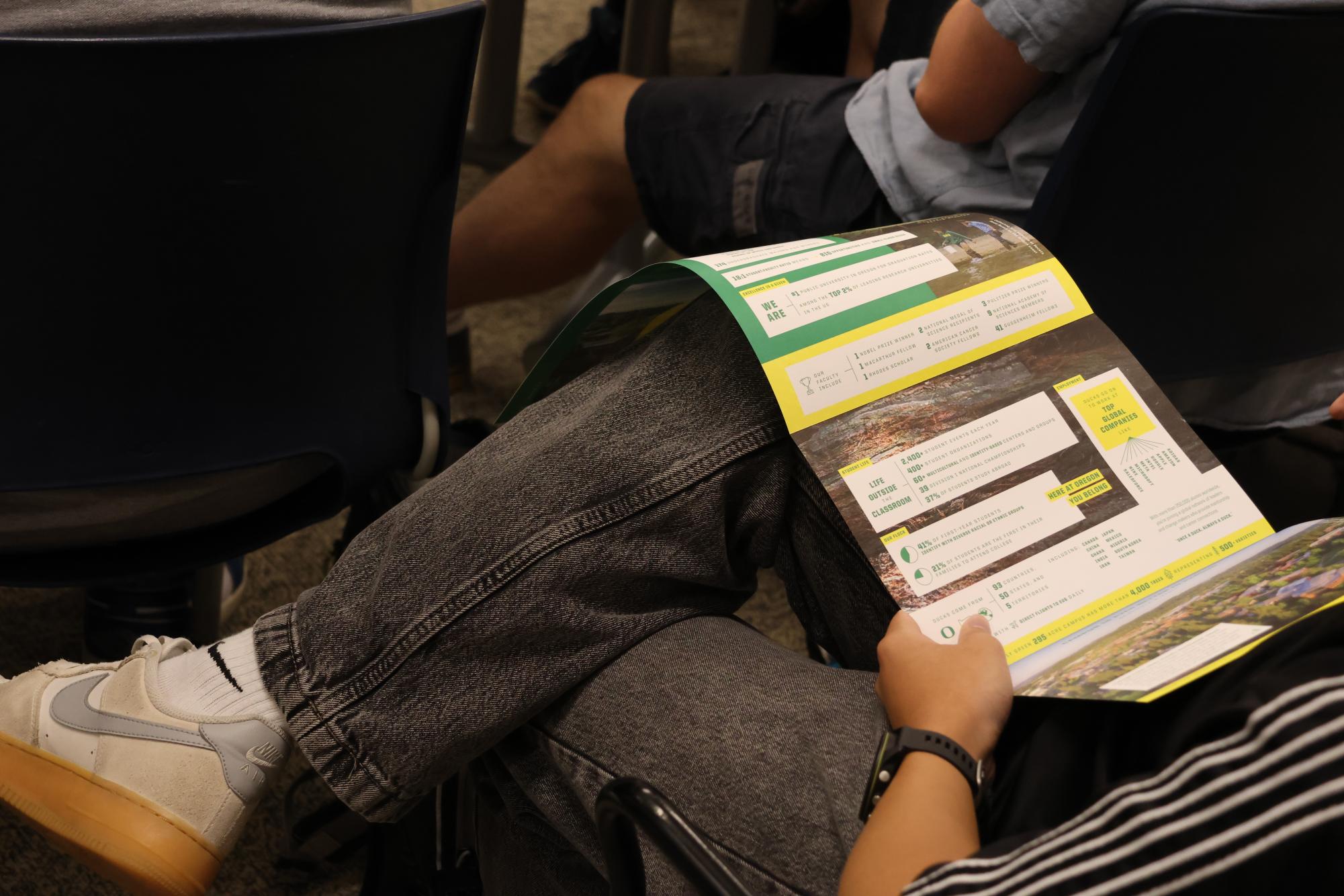
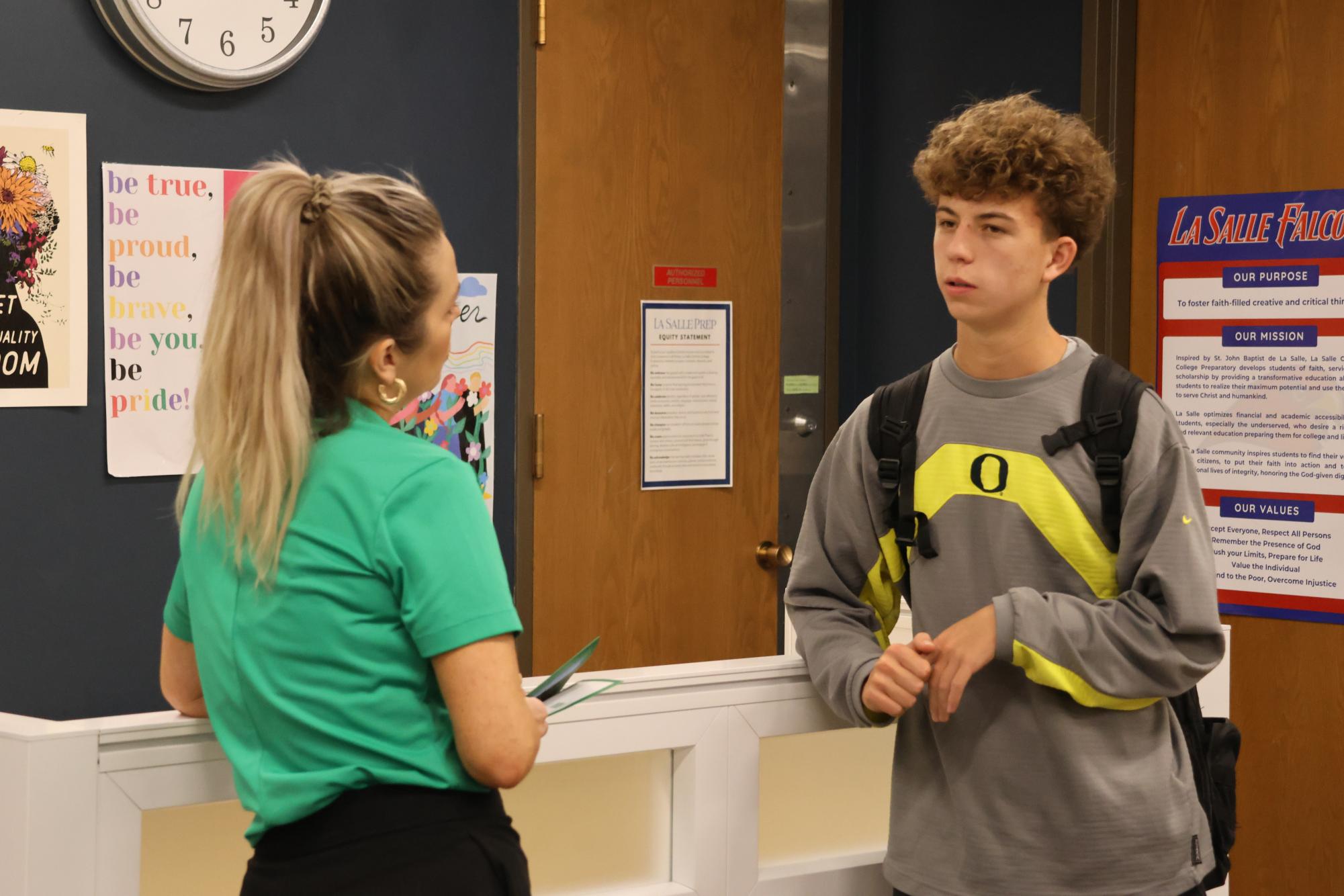
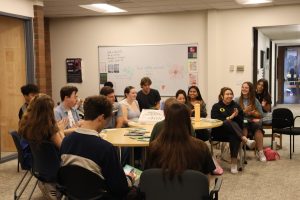
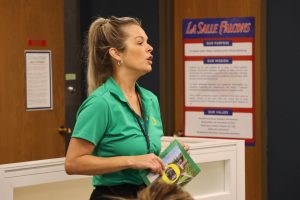
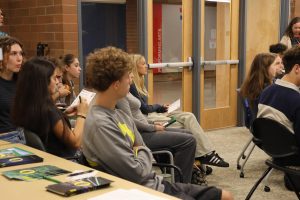
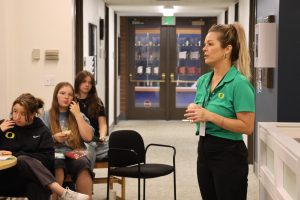
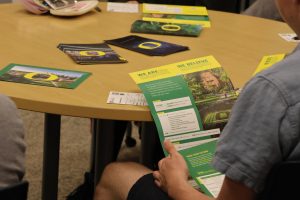
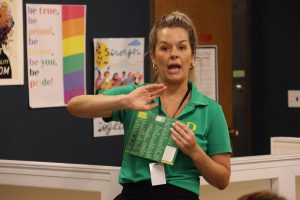
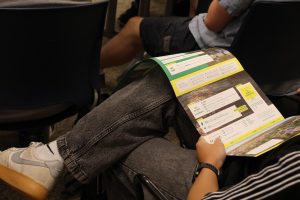
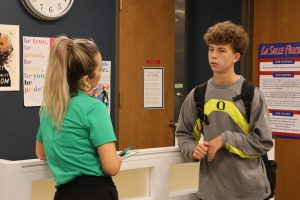



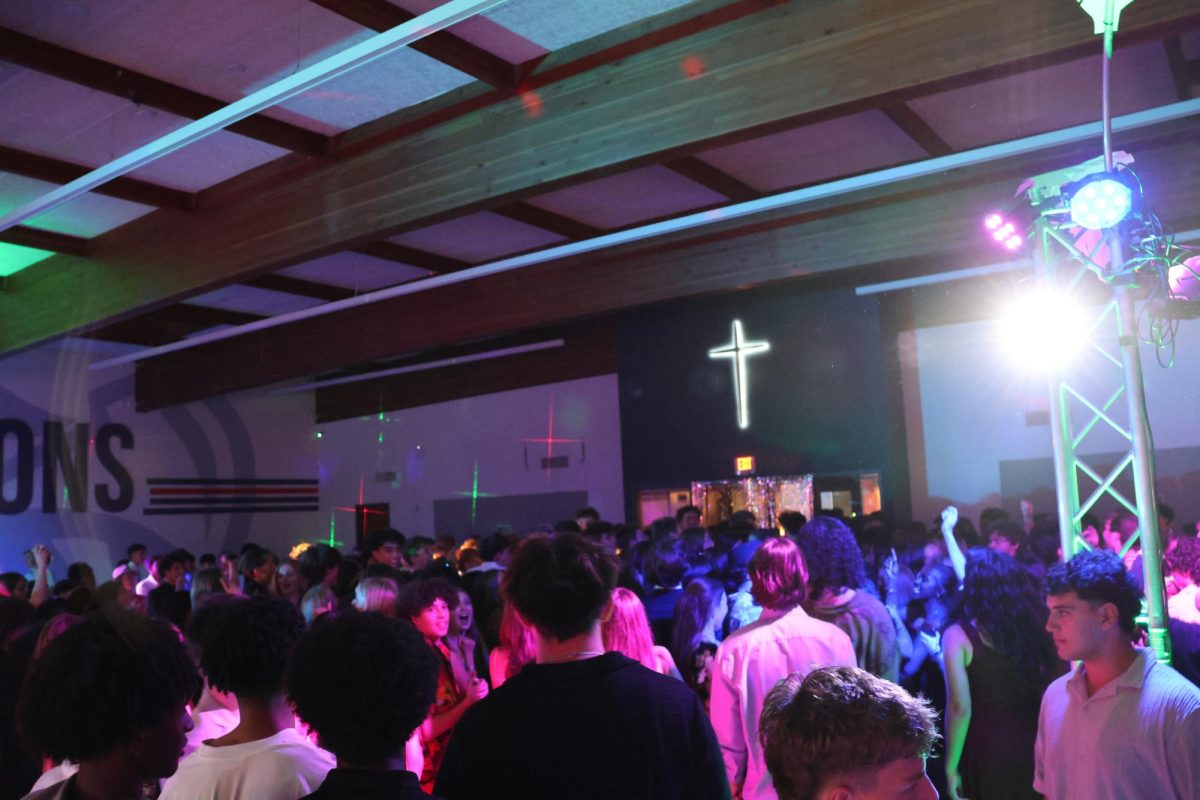
![Mr. Owen Furlong, the temporary Campus Safety Monitor, grew up near La Salle and described how Christ the King was “basically [his] backyard for a long time.”](https://lasallefalconer.com/wp-content/uploads/2025/10/115A2328-1200x800.jpeg)
